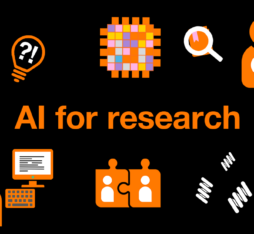Let’s Talk Tech: Orange Research – AI, Cybersecurity, and Networks of the Future
Let’s Talk Tech, episode 21 with:
- Lyse Brillouet, Director of Research and Intellectual Property at Orange
- Kahina Lazri, Systems and Infrastructure Security Researcher at Orange
- Jeanne Monnier, PhD student in AI Ethics at Orange
- Gwénolé Lecorvé, Automatic Language Processing Researcher at Orange
Orange OpenTech, Orange’s innovation and research event, will take place from November 18 to 20, 2025. This edition will focus on innovation that creates value and drives collective progress, where technology and people come together to tackle the major technological challenges of today and tomorrow.
In June, at the VivaTech trade show, Orange announced the launch of Orange Quantum Defender, a solution designed to help businesses combat the quantum threat. Lyse Brillouet, the group’s director of research and intellectual property, explains that this announcement represents “a tangible transfer from research to business.” This innovation is based on the combination of two technologies: post-quantum cryptography (PQC) and quantum key distribution (QKD).
Orange’s research is at the heart of the innovation chain. It equips and arms the company to face a constantly changing world.
With more than 700 researchers and 100 doctoral students involved, Orange’s research is preparing the networks of the future, strengthening cybersecurity, and rethinking digital responsibility.
Fundamental research, a pillar of the group
Kahina Lazri, a researcher in systems and infrastructure security, explains in this episode that Orange’s innovations are also rooted in fundamental research projects: “Our work focuses on the formal verification of eBPF to ensure that no faulty program can compromise an infrastructure,” she explains. eBPF is a technology that allows code to be executed directly in the Linux kernel to improve network performance. This research, conducted in collaboration with Inria Paris, lies at the crossroads of language theory, formal verification, and operating system design.
Adapting AI to make it more accessible
In Rennes, Gwénolé Lecorvé, a researcher at Orange in automatic language processing, is working on the linguistic and cultural adaptation of language models. His team is seeking to make language models accessible to underrepresented languages, such as Wolof. “Large models do not always work for languages with limited resources. We have to teach them to speak these languages without making them forget the others,” he explains. To do this, researchers are creating synthetic data, i.e., fictional but plausible conversations, and designing rigorous evaluation methods.
Towards more ethical AI
Jeanne Monnier, a PhD student in AI ethics at Orange and winner of the 2024 “My Thesis in Three Minutes” award, explores the discriminatory biases present in traditional AI models. “The goal is for users to have confidence in the model they are using, and for a company like Orange to enable its customers to have confidence in the service provided to them,” she explains. This essential work involves creating a bridge between philosophy, sociology, law, and computer science in order to “translate these ethical definitions into mathematical formulas.”










